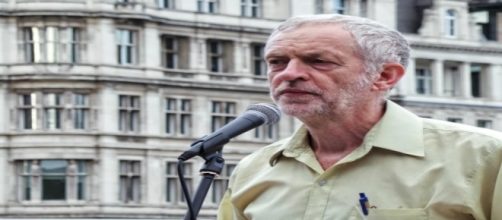Jeremy Corbyn suffered resignations and rebellions against his order to vote for Brexit as more than one fifth of labour mps rejected legislation handing Theresa May the power to trigger Britain's exit from the European Union.
After a second day of debate in the House of Commons, the European Union (Notification of Withdrawal) Bill cleared its first hurdle as 498 MPs voted to give it a second reading, while 114 voted against.
The Labour leader saw 47 of his MPs rebel - while 167 backed his position - to join 50 SNP MPs and seven Liberal Democrats in voting against triggering article 50.
One Conservative MP, Ken Clarke, joined them in the division lobbies, to which Labour rebels expressed great delight.
Ahead of the vote, Corbyn was hit by two fresh resignations from the frontbench team of the shadow cabinet, so they could freely defy what they regarded a historic mistake.
Shadow environment, food and rural affairs secretary Rachael Maskell stepped down, saying the most important thing to her was to serve her constituents, while Dawn Butler quit as shadow minister for diverse communities, arguing she could not vote for a "poor excuse of a bill".
Shadow Welsh secretary Jo Stevens and Tulip Siddiq, shadow minister for early years, had already resigned.
Corbyn's team said that any decision to sack rebels will be "taken at a later stage".
The bill now faces further scrutiny in the Commons and the House of Lords before it can become law.
Overwhelming backing for bill
MPs held two days of debate on the bill, which follows last June's referendum in which voters opted by 51.9 per cent to 48.1 per cent in favour of Brexit.
The government was forced to seek parliament’s approval for its plans by a Supreme Court ruling last week.
Parties have long been split over Europe but, in contrast to Labour, both pro-Remain and pro-Brexit Conservative MPs - with the exception of Ken Clarke - have united behind triggering Article 50.
Several Remain-backing Conservatives expressed concerns about the government’s plans for Brexit during the two-day debate.
But Downing Street bought off potential Tory rebels with the promise of a white paper on the government's negotiating plans.
Foreign secretary Boris Johnson, a leading Leave campaigner, called the Commons result "absolutely momentous" and said the UK would "forge a new identity" and make "an amazingly positive contribution" to Europe.
He added: "We may be leaving the EU treaties. We are not leaving Europe."
Ramifications for rebels
Labour leader Corbyn had imposed a three-line whip - the strongest sanction at his disposal - on his MPs to support the bill. Most Labour constituencies voted to Leave and the Labour leadership argued it would be undemocratic for the MPs to ignore the national referendum result.
However, the overwhelming majority of Labour MPs originally backed Remain and many of those who represented Remain-supporting, often inner-city, areas felt they would be failing to represent their constituents if they backed the bill.
Three of Corbyn's own whips - Thangam Debbonaire, Jeff Smith and Vicky Foxcroft - voted against the bill and he must now decide how to discipline the frontbenchers who defied his orders.

